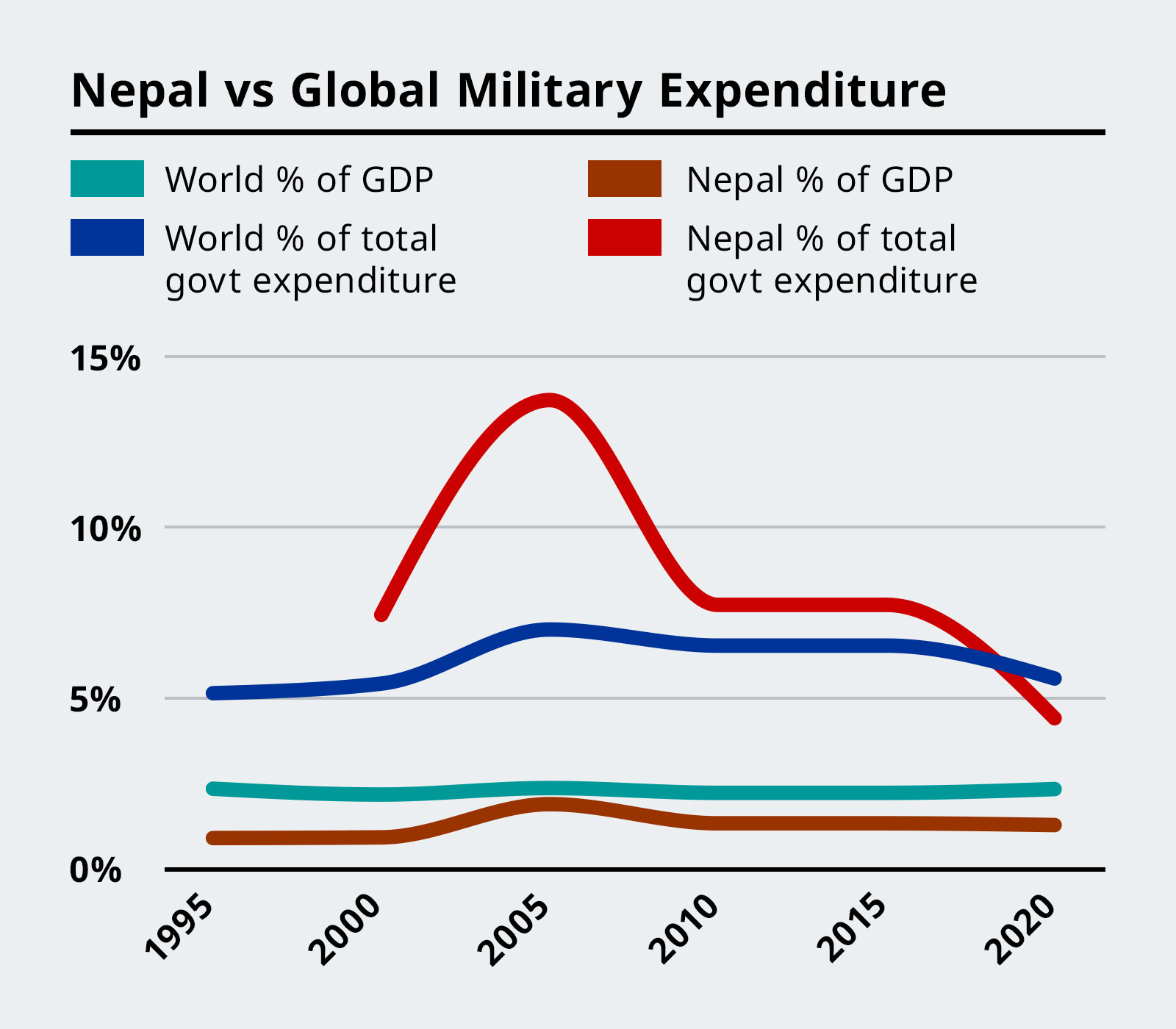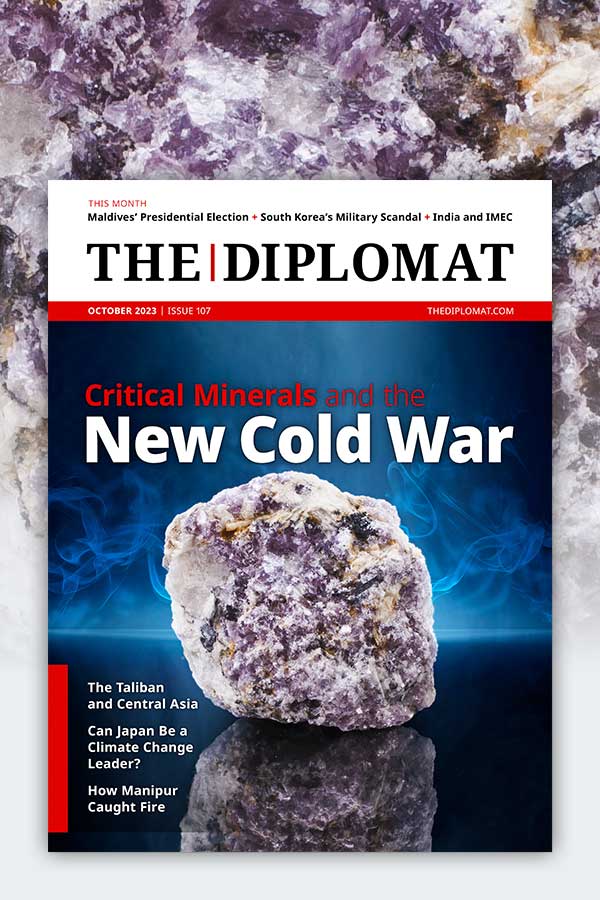| Welcome to the latest issue of Diplomat Brief. This week our top story explores the practical impacts of China’s recent export ban on two critical minerals, gallium and germanium. We also have an interview with veteran journalist Ian Johnson on China’s “underground historians.” |
| Story of the week | ![[object Object]](https://thediplomat.com/diplomat-brief/2023/vol41/images/feature.jpg) | Economy Don’t Worry About China’s Gallium and Germanium Export BansWhat Happened: New Chinese government restrictions on exports of gallium and germanium – two critical minerals used in semiconductor production – took effect on August 1. That month, China exported none of either mineral, despite producing 80 percent of the world’s gallium and 60 percent of germanium. But the world shouldn’t worry about a shortfall of the critical minerals. Our Focus: Writing for The Diplomat, mining and minerals expert Tim Worstall compares the current ban to China’s 2010 attempt to restrict exports of rare earth elements. “For the little secret about both – in fact the little secret about near all minerals and metals – is that there’s no shortage of them out there,” Worstall writes. Instead, the market is driven by who can provide the needed mineral most cheaply and efficiently. That has often been China, but it’s not the only option. In the case of rare earths, the rest of the world moved quickly to fill the vacuum left by China; for gallium and germanium, the result will be the same. The minerals are easily obtained and processed using known technology. What Comes Next: “There’s no reason for [a] shortage other than the fact that China has been doing such work cheaply these past years, so Western plants have been idled. If China takes itself out of the supply chain, the world will move on,” Worstall notes. His point is simple: “China’s new export ban is not a strategic issue, nor one that requires any intervention… Gallium and germanium prices are going to rise for the refined material – thus people will increase supply.” In fact, the only long-term impact of China’s export bans might be to hasten the world’s transition away from relying on China to supply critical minerals. Read this story |
| Behind the News | INTERVIEW Ian JohnsonIan Johnson, author of “Sparks: China’s Underground Historians and their Battle for the Future,” on the growth of China’s counter-historians: “Thanks to the spread of simple digital technologies over the past two decades – email, USB memory sticks, PDFs, cheap digital cameras, and software to jump the firewall – China’s counter-history movement includes tens of thousands of people in big, medium, and small cities across the country… Despite the huge security apparatus in China, it’s not possible for authorities to watch all of these people all of the time.” Read the interview |
| This Week in Asia | Northeast Asia China Watches the Israel-Hamas WarWorld attention has been glued to the Gaza Strip since Saturday, when Hamas sent hundreds of armed gunmen and thousands of missiles across the border into southern Israel. Count China among the countries more concerned with urging Israel to practice “restraint” than denouncing Hamas’ killing and kidnapping of civilians, including children and the elderly. While Beijing is usually paranoid to the point of obsession about terrorism, in this case China sees more to be gained by siding with the Arab world – and potentially driving a wedge between the pro-Israel United States and its pro-Palestine Gulf allies. Find out more | South Asia More Than 2,000 Dead in Afghanistan EarthquakeFor the second time in as many years, Afghanistan has suffered catastrophic damage from an earthquake. The quake that struck Herat province on Sunday has left at least 2,000 dead and many more homeless. With Afghanistan ruled by the Taliban regime, which it not official recognized by any country, aid was slow in coming. Adding to the difficulties, the Taliban have severely restricted the ability of international humanitarian organizations to operate in Afghanistan, including by preventing women from working for the U.N. and other aid agencies. Find out more | Southeast Asia Southeast Asia Responds to Israel-Hamas ConflictThis week, the region’s governments have been responding to the escalating conflict between Israel and the Palestinian militant group Hamas, following the latter’s gruesome attacks on civilian settlements adjacent to the Gaza Strip in southern Israel. Unsurprisingly, the range of regional responses has included staunch condemnations of the Hamas attacks (Singapore, the Philippines), calls for dialogue and restraint (Thailand, Vietnam), and denunciations of the Israeli occupation of Palestinian territories (Malaysia, Indonesia). These divergent reactions are no surprise, given Southeast Asia’s geographic distance from the conflict, its nations’ differing relations with Israel, and the widespread support for the Palestinian cause in the region’s Muslim-majority nations. Find out more | Central Asia Kolbaev Killing Triggers Deep Doubts About Law and Order in KyrgyzstanKamchybek Kolbaev was an internationally wanted criminal but seemed to be living just fine in Kyrgyzstan up until last week, when the Kyrgyz security services killed him in a Bishkek pub. Guess no one will claim the $5 million reward for his arrest that the U.S. has offered for several years. Kolbaev’s killing both set off the rumor mill, and triggered deep doubts among the Kyrgyz public about the nature of law and order in the country. Find out more |
| Visualizing APAC |  | While Nepal’s military expenses have become the subject of political debate, they are below global averages for both percent of total government expenses and percent of GDP. See the full picture |
| Word of the Week | Politics отметкаOtmetka, demanding hefty payments, is a staple feature of the intricate business-criminal-state nexus in Kyrgyzstan. Find out more |
| In Case You Missed It | ![[object Object]](https://thediplomat.com/diplomat-brief/2023/vol41/images/webinar.jpg) | The Diplomat Asks What to Expect From Maldives’ New PresidentOn September 30, Maldivians selected their next president in a run-off between the top two finishers in the first round: Malé Mayor Mohamed Muizzu and incumbent President Ibrahim Solih. Muizzu prevailed handily, with 54 percent of the vote, setting the stage for a transition of power. It’s been an especially complex election cycle, featuring infighting in the ruling party and contestation within the opposition PPM-PNC coalition over the preferred candidate, all amid longer-standing concerns about free elections in Maldives’ young democracy. Meanwhile, the geopolitics of the election loomed large, with the PPM-PNC coalition undertaking a high-profile “India Out” campaign in recent years. If you missed our live webinar on Maldives’ future, in terms of both domestic and foreign policy, you can view the recording here. |
|  |

![[object Object]](https://thediplomat.com/diplomat-brief/2023/vol41/images/feature.jpg)

![[object Object]](https://thediplomat.com/diplomat-brief/2023/vol41/images/webinar.jpg)
